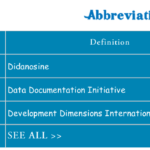Unlocking Career Potential: What You Can Do with an Associate or Bachelor’s in Science

Introduction: The Pathways an Associate or Bachelor’s in Science Can Open
Earning an Associate of Science (AS) or a Bachelor of Science (BS) degree can profoundly impact your career trajectory, income potential, and personal growth. Whether you’re seeking an entry-level position, aiming to pivot into a new field, or planning to pursue advanced study, these degrees offer flexibility, value, and access to a wide variety of professional opportunities. This article provides an in-depth look at the many directions available with these credentials, based on current data and real-world examples, and offers clear guidance on how to access and maximize these opportunities.
What Is an Associate of Science Degree?
An Associate of Science degree is typically a two-year undergraduate program that provides foundational knowledge and practical skills in fields such as health care, technology, engineering, and business. Community colleges and some four-year institutions offer these programs, which bridge the gap between high school and bachelor’s degree study. The AS degree is designed to either prepare graduates for immediate entry into the workforce or serve as a stepping stone to a bachelor’s degree [2] .
Career Opportunities with an Associate of Science Degree
Graduates with an AS degree can access a range of rewarding careers that don’t require a four-year degree. According to the U.S. Bureau of Labor Statistics, there are nearly 100 job fields where an associate degree is sufficient for entry. Some of the most popular and lucrative options include:
- Dental Hygienist : Median salary around $76,220 per year. These professionals provide essential preventive dental care and educate patients about oral health [3] .
- Web Developer : Median salary approximately $73,760. Web developers build and maintain websites and web applications, often working in tech companies or as freelancers [3] .
- Radiologic Technologist : Median salary about $62,280. These professionals operate imaging equipment to help diagnose injuries and illnesses [3] .
- Paralegal and Legal Assistant : Median salary $51,740. Paralegals support lawyers by organizing files, conducting research, and preparing legal documents [3] .
- Engineering Technician : Roles such as mechanical or electrical engineering technicians support engineers in designing and testing equipment and systems [1] .
- Occupational Therapy Assistant : Median salary $59,200. Assistants help patients develop, recover, and improve skills needed for daily living [3] .
These are just a few of the many fields open to AS graduates. Other common roles include medical assistant, computer network support specialist, architectural drafter, and cardiovascular technologist [4] .
Advantages of an Associate of Science Degree
There are several compelling reasons to pursue an AS degree:
- Cost and Time Efficiency : Typically completed in two years, an AS degree allows you to enter the workforce quickly and with less student debt compared to a traditional four-year program [2] .
- Higher Earning Potential : Median weekly earnings for associate degree holders are $1,058, compared to $899 for those with only a high school diploma [2] .
- Flexible Career Pathways : Many AS programs are designed to allow seamless transfer into bachelor’s degree tracks, giving you the option to continue your education later [4] .
- In-Demand Skills : Programs often focus on technical skills that are highly valued by employers, such as digital literacy, lab techniques, or healthcare procedures [1] .
How to Access Associate of Science Programs and Job Opportunities
To get started with an associate of science degree:
- Research accredited community colleges or universities that offer AS programs in your area or online. Use official education search portals or visit your state’s department of higher education website for verified options.
- Check admission requirements, which usually include a high school diploma or equivalent. Some programs may require placement tests.
- Explore financial aid opportunities, such as federal student aid via the official FAFSA website (studentaid.gov), scholarships, or state grants. Avoid unofficial or unverified websites.
- After enrollment, take advantage of career services at your institution, such as resume building, job placement support, and networking events.
- To locate job openings suitable for AS graduates, use reputable job search engines or connect with local employers through career fairs and professional organizations.
It’s important to verify the accreditation status of any college or program you consider and to consult official school or government websites for the most accurate and current information.

Source: luzenelhorizonteymas.blogspot.com
What Can You Do with a Bachelor’s in Science?
A Bachelor of Science degree typically requires four years of full-time study and offers deeper specialization in fields such as biology, chemistry, physics, engineering, computer science, and more. This degree opens the door to a broader range of professional roles, higher earning potential, and often greater advancement opportunities [2] .
Common career paths for BS graduates include:
- Research Scientist
- Registered Nurse
- Software Developer
- Environmental Scientist
- Medical Technologist
- Data Analyst
- Engineering Roles (Mechanical, Civil, Electrical, etc.)
In many cases, a bachelor’s degree is required for professional certification, graduate study, or specialized positions in business, government, or non-profit sectors. Employers often use a bachelor’s degree as a baseline qualification for management or supervisory roles.
Comparing Associate and Bachelor’s Degrees in Science
While both degrees offer access to rewarding careers, they differ in scope, investment, and outcomes. An AS degree is well-suited for those seeking to enter the workforce quickly, minimize tuition costs, or explore career fields before committing to a four-year degree. A BS degree, on the other hand, is ideal for those seeking broader career options, higher earning potential, or access to roles that require more advanced study.
It’s possible to start with an AS degree, gain work experience, and later transfer credits toward a BS program. Many universities offer transfer agreements with community colleges to streamline this process. Prospective students should consult academic advisors at both institutions to plan their educational pathway.
Action Steps: How to Choose and Advance Your Science Education
1. Identify Your Career Goals : Consider your interests, salary expectations, and desired work environment. Research which degree is most commonly required for your chosen field.
2. Research Accredited Programs : Use your state’s higher education website or the U.S. Department of Education’s College Scorecard to find accredited colleges and compare program outcomes.
3. Apply for Financial Aid : Complete the Free Application for Federal Student Aid (FAFSA) at studentaid.gov for federal grants and loans. Search for scholarships via your college’s financial aid office or reputable databases.
4. Plan for Career Advancement : Take advantage of internships, networking opportunities, and professional certifications to enhance your employability. Career services departments at most colleges provide job search support.
5. Consider Transfer Paths : If you start with an AS degree, ask about transfer agreements with four-year institutions to ensure your credits will count toward a bachelor’s degree.
Key Considerations and Challenges
While science degrees offer many benefits, it’s important to research local job markets, as demand for specific roles can vary by region and economic conditions. Some positions may require professional licensure or additional certification, so consult with industry associations or state licensing boards for up-to-date requirements. Balancing work, study, and financial commitments can be challenging, but many institutions offer flexible scheduling and support services.
Summary and Next Steps
Whether you’re interested in a two-year associate program or a four-year bachelor’s degree, the field of science offers diverse, in-demand career possibilities and a strong foundation for future growth. By researching accredited programs, clarifying your goals, and leveraging available resources, you can take confident steps toward a rewarding and sustainable career in science.
References
[1] GetEducated (2025). 24 Highest Paying Associate Degree Jobs.
[2] Coursera (2025). A Guide to Associate of Science Degrees.
[3] Tallo (2024). What Kinds of Jobs Can You Get with an Associate of Science Degree?
[4] Southern New Hampshire University (2024). What is an Associate of Science Good For?






